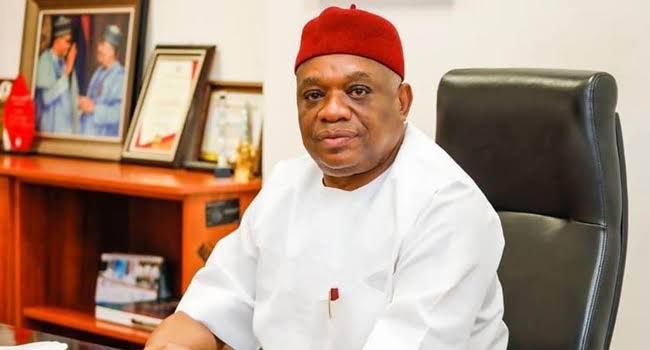
Senator Orji Kalu, who represents Abia North Senatorial District, has warned that Nigeria’s economy could collapse without external financing.
Speaking on Monday’s edition of Politics Today on Channels Television, Kalu defended the country's borrowing practices amid criticism of the National Assembly’s approval of executive loan requests.
His comments come as concerns mount over Nigeria’s growing debt burden.
When asked whether lawmakers thoroughly scrutinize loan requests, the former Senate Chief Whip maintained that the oversight process is still effective.
“Let me tell you, if this economy does not borrow, it will collapse. That is the truth. That is where we are.
“Of course. The Committee on Foreign Debt and Local Debt scrutinises them. I’m not a member of that committee. These jobs are mainly done at the committee level. For me, the National Assembly has done its job,” he explained.
In April 2025, Nigeria completed the repayment of the \$3.4 billion loan it secured from the IMF under the Rapid Financing Instrument during the COVID-19 pandemic.
Despite settling the principal, the country will continue to incur annual charges of about \$30 million in Special Drawing Rights (SDR) linked to the facility.
Nevertheless, Nigeria intends to borrow an additional \$26 billion between 2025 and 2026 to cover budget deficits and stimulate economic growth—a plan that has drawn criticism, with many Nigerians accusing the National Assembly of acting as a “rubber stamp.”
But former Abia State Governor Orji Kalu has rejected the allegations, maintaining that all legislative procedures are properly observed.
“Any law or anything you see passed in the National Assembly has gone through the level it’s supposed to. Once it takes its course, I’m satisfied. That’s the definition of lawmaking,” he added.
The lawnaker also rebuffed suggestions that lawmakers were failing to perform their oversight role and cited the recent passage of the tax bill as proof of the Senate’s diligence.
“We are very thorough. People just want to see us fighting with the executive. We are adults. We cannot fight. For the interest of Nigeria, we have mechanisms to safeguard that.
“The day we passed the tax bill, I went to the Senate President’s house to congratulate him. It was a thorough job. All the evenings we were there— seven o’clock, six o’clock— we took it one by one. That’s not what a rubber stamp does,” he stated.








